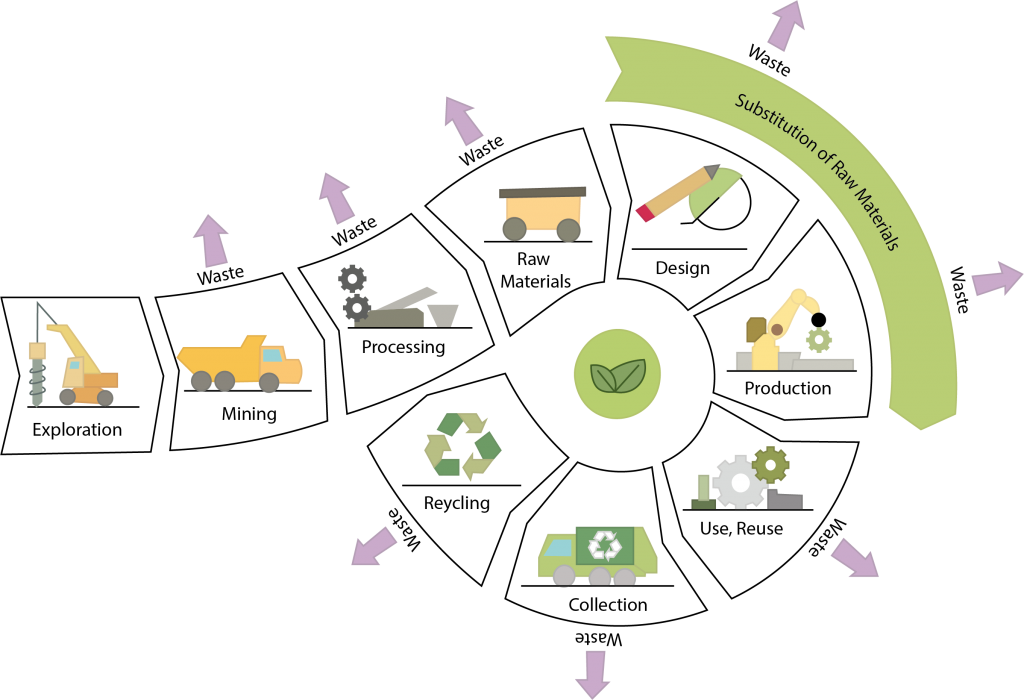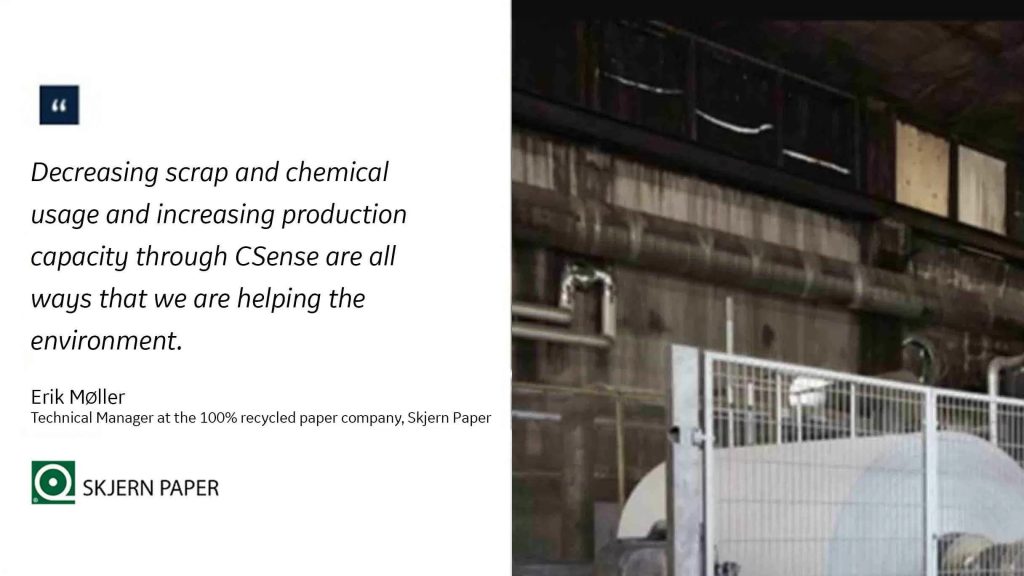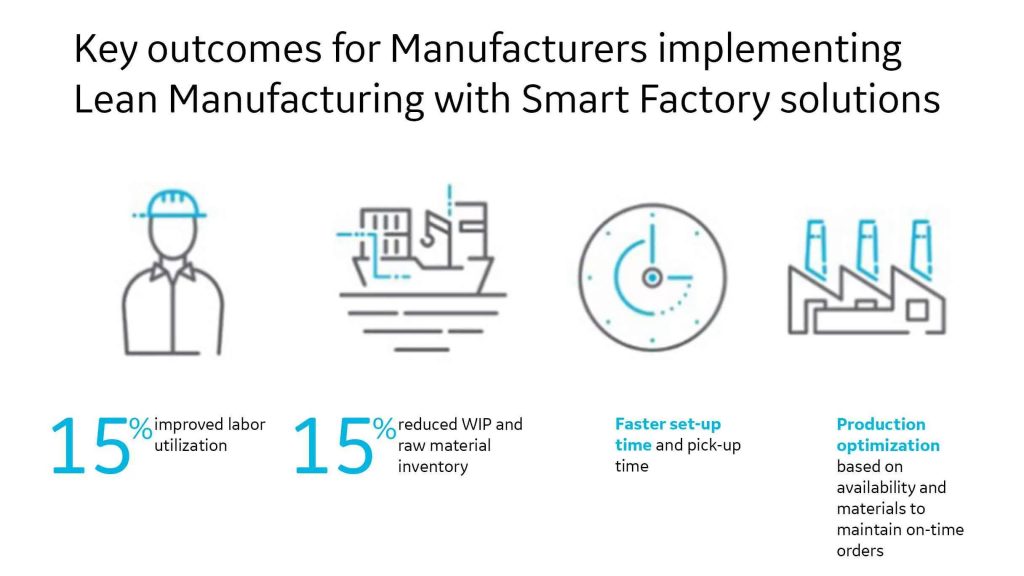Enabling Lean and Circular Economy initiatives using Smart Factory solutions

There are a few topics that are banded around in the industry trade press: resiliency, waste, and the growing role of artificial intelligence and machine learning. If you work in a production facility, there are other big ideas – smart factory or facilities, lean, and sustainability. Sometimes these ideas appear in conflict with each other, so if we want to find a way to achieve all the forementioned (a sustainable business and planet), then we need to get digital transformation right. Digitalising our infrastructure will enable an even bigger market opportunity – the circular economy.
The circular economy is more than a sustainability initiative – it is a transformation framework to help industrial companies make and save money by maximising the use of resources. Waste in the circular economy is “fugitive” or lost value. But there is good news – established manufacturing methodologies like lean are enablers to circularity journeys because they share the common goals of waste discovery and elimination.
Lean Circularity
Enter lean circularity or c-lean, which is a novel conceptually developed framework that merges the vitality of lean and circular economy. The proposed framework utilises lean tools and methods mingled with circular economy principles to achieve circularity as well as efficiency and effectiveness in manufacturing operations.
At GE Digital they have been developing software solutions for lean circularity, and they are looking for innovation partners! Email Ben Whiteman, Product Manager, Circularity at Benjamin.Whiteman@ge.com and read-on to explore these critical value drivers.
Don’t just eliminate waste. Monetise it.
While 25-30% of emissions and waste come from households and individuals, “the vast majority of global emissions (70-75%) can be reduced directly by the decisions of those who run businesses, utilities, buildings, and governments” (Project Drawdown). Therefore, if we want to reduce our impact on the planet, industry must take the lead. Eliminating waste entirely may not always be possible, but if we can turn that remaining waste into a valuable product, then it starts to make sense.
A majority 68% of industry has already started adopting lean concepts including; Muri (process overburdening), Mura (variability signals), and Muda (waste results) as well as visualisation tools like value stream mapping (VSM) to guide systems thinking and streamline stakeholder buy-in.

In the white paper, Lean Manufacturing in the Age of the Industrial Internet, GE Digital discusses how customers have used lean-driven software solutions to achieve up to 15% improved labour utilisation, 15% reduced work in process, in addition to faster turnaround and production optimisation for on-time delivery.
GE Digital is enabling smart factories for lean circularity
GE Digital is actively developing new lean circularity solutions to help industrial companies start thinking about their waste as valuable inventory. They have witnessed customers are using GE Digital Historian, Automation, and Analytics products to capture and create value from waste, as well as meet regulatory reporting requirements. By observing and listening to their feedback, they are driven to help companies unlock value and reinvest in continuous improvement for their business while benefiting society.

As industrial companies continue down this path, they’ll need digital solutions that can support their business and operating models – which is why digital transformation is so important. Smart factory technology combined with lean culture are driving the future of waste elimination and circular industry.
Three problems worth solving
Building on interviews and the success of customers leveraging our existing products, we have identified three problems worth solving to focus our circular innovation efforts:
- Measure use: To deliver circular industrial and manufacturing systems, a holistic set of data is required to build the right metrics/KPIs to drive action. This extends beyond traditional production metrics to include the social, environmental, and economic impact of each resource used.
- Use less: There is a pressing need to reduce resource consumption (materials, energy, and utilities) to achieve circularity/sustainability goals and meet regulatory requirements. This requires the ability to measure, reduce, and optimise usage at the process, equipment, and product level.
- Track and Trace: A major challenge for circularity is understanding the history of each product, part, and material. The majority of those interviewed seek to track and trace their raw materials, products, and components to understand their condition, quality, performance, composition, and history (e.g., recycled content). This will inform their operational strategies for reuse, recycling, as well as marketing strategies for product differentiation. Now mandated in the EU, this is a foundational component for the “Digital Product Passport.”
The next steps
With 73% of consumers willing to change their behaviour, enterprises are acting. A true circular economy is some way away, but GE Digital has the tools needed to get there. Adopting smart factory technologies is an important step on the lean circularity journey. For the resiliency of our environment, societies, and bottom lines, utilisation of smart factory solutions for lean circularity is the greatest industrial opportunity of our time.
Email Ben Whiteman, Product Manager, Circularity to join GE Digital in building a world that works.







